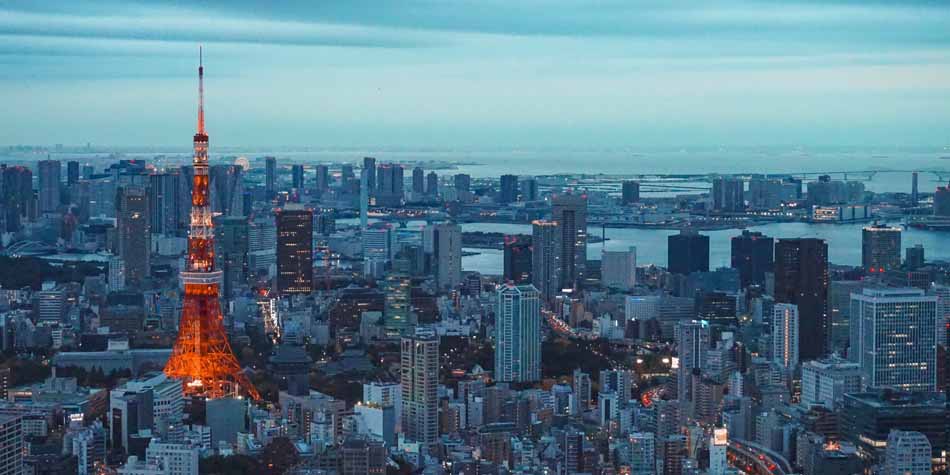Photo by Fikri Rasyid on Unsplash
Table of Contents
Japan is one of the most popular countries, and the number of people who move to Japan and work there has been increasing recently. Are you dreaming of working in Japan? If so, there is a thing you need to keep in mind, Black Companies in Japan.
Black Companies (ブラック企業: Black Kigyo) would be unique to Japan. Seriously, Black Companies in Japan might spoil you and kill you. You must be really careful when applying for a job in Japan.
In this article, let us tell you more about Black Companies in Japan. After you read this, you will know the characteristics of Japanese “Black Companies,” Karoshi, how to avoid working in such terrible companies, and how to quit it.
What is a Black Company?

Have you ever heard of a “Black Company”? In English, “A Black Company” does not make sense. The definition of a “Black Company” is a company with terrible working conditions or a company that habitually flouts labor regulations.
The term Black Company started to be popular around 2001 in Japan. In the forum on the Internet, people talked about companies which cannot recommend working and listed them. It was called a “Blacklist Companies”. Then, it was shortened and started to be called as a “Black Company”.
Here are the main characteristics of Black Companies. We will explain each of them in detail later.
- A lot of overtime
- Low salary
- High Turnover
- Low number of paid leaves
If you keep working in such a Black Company, your health will be deteriorated both mentally and physically. In addition, it will affect your own personal life.
Also Read: 3D Artist Salaries in Japan Complete Guide for 2022
What is Karoshi?

A number of people have been sick or dead because of excessive overwork at Black Companies in Japan.
Karoshi is Japanese, which means death by overwork in English. Many people have suffered from heart failure, stroke, or committed suicide because of the stressful working environment.
This term started to be used in the 1980s when Japan had an economic boom. Behind the economic prosperity in Japan, many young men became the victims.
The Health Ministry reports that at least 107 people died of Karoshi and 84 people committed suicide or attempted suicide in 2016.
With a woman’s suicide in 2016, the Japanese Government began to regard this as a severe problem finally. They initiated an investigation of Black Companies and took measures against Karoshi and Black Companies.
Then many companies started making effort to work less and promote their employees to have work-life balance. For example, some companies started to introduce “No Overtime Days” and encourage all the employees to leave the office on time. However, instead of working at the office after hours, many of the workers still work from home. In short, the total amount of overtime hours has not changed dramatically in spite of such an effort by the company.
Unfortunately, Japan is still famous for having the most prolonged working hours in the world and Karoshi is a severe social problem.
The Black Company Awards
It is not easy to inform the public of the Black Company’s wrongdoings. In many cases, employees have no strengths to stand up for themselves.
In order to raise awareness of such corporate malpractice, the Black Company Awards was established in 2012 and became an annual award. This event is organized by the Black Company Grand Prize Executive Committee, which is a group of people such as journalists, activists, and university professors.
REF:http://blackcorpaward.blogspot.com/
In this award, general people can vote on “the most horrible company of the year.” Wishing that such evil companies would be gone by exposing themselves in public. Also, this award will be helpful for job seekers.
The main factors considered when people decide which companies will be voted for are:
- Long working hours
- No overtime payment
- Harassment and bullying
You might be surprised that very big and international corporations have been nominees of this award such as Mitsubishi Electric Group, Panasonic, Toyota and Seven-Eleven Japan.
From this fact, it can be said that big companies are not necessarily safe and happy to work for.
How to identify a Black Company?

In this section, we will explain the several typical characteristics of Black Companies more in detail.
Here are 4 characteristics of Black Companies. The more characteristics are applied to your companies, the more possibility that you are working for Black Companies.
A lot of overtime
In Black Companies, the employers expect the employees to work unreasonable amount of overtime. Forcing long hour hard working is the most significant feature of Black Companies.
It is said that people who have 80 hours of overtime in a month are likely to have possibility of Karoshi. The Japanese Government officially announced that the companies will be fined if they force employees to work more than 80 hours of overtime 3months in a row.
With this, 80 hours of overwork in a month is a benchmark for a Black Japanese Company in Japan.
Moreover, some Black Japanese Companies will not offer overtime pay even though they force you to do excessive overwork.
Others include fixed overtime payment in your regular salary even though it is obvious that you work much longer than the amount of time regulated in this salary system. Unfortunately, the minimum amount of fixed overtime pay is not regulated, so each company can set for fixed overtime freely.
Instead of working at the office after hours, many of the workers still work from home because their employers give them too many responsible tasks to finish within the day. In other words, employers can say in public that they are not forcing their workers to work overtime, and working overtime is the employees’ responsibility. Not to mention, it is illegal.
You should ask if the overtime payment is guaranteed during the job interview and see the reactions and answers from your interviewers.
Low salary
According to SANRO Research Institute, the average monthly salary for a fresh university graduate was ¥208,826 in 2019. In short, the average annual salary is approximately 2.5 million yen (+ a small bonus).
Of course, the average salary is different in each sector. We recommend you research the average salary for new employees in your sector.
When your salary is much lower than the industry average, you should negotiate about it with your manager. If he is reluctant to raise your pay without clear explanation, that explains your company might be a Black Company.
As mentioned above, your salary might include fixed overtime payment. In such a case, your salary looks higher than the industry average. You should also ask about this during the job interview.
High turnover
Compared with employment in western countries, changing jobs constantly is not regarded as a good thing in Japan still now.
For this reason, you should check the turnover of the employees who have left the company within three years after they started.
According to the Japanese Government, the average turn over in Japan is approximately 30%. Therefore, the indicator of Black Companies is more than 50%.
It might be challenging to ask this someone in your company. In such a case, there are a couple of ways to check the data. First, you can visit online job portals. However, this platform is free, so Black Companies are not likely to list the data. Second, you can look at the data via Shushoku Shikiho. This is a book which is published every year and lists lots of helpful information such as average income and the average age of workers.
Also, most employees in such horrible companies quit the company all of a sudden without calling or talking with their managers. Then the company will keep hiring new employees one after another. These are also other signs of a Black Company.
Low number of paid leave
If you take days off based on calendar’s holidays, you can have 120 days of holidays annually in Japan. Also, if you are a full-time worker, companies will give you opportunities to have 20 days for paid leave on average.
If you work at Black Companies, the holidays including paid leave will be less than 80 days.
The reason why you cannot take paid leave is chronical manpower shortage in the company. They cannot afford to or are reluctant to hire more people. They are trying to avoid financial burdens by forcing their existing workers to work a lot.
Also, some companies have a blur boundary between working time and your personal time. They try to contact with you constantly even after work and while you are having holidays and they take it for granted that you are always available for them.
How to Avoid Black Companies in Japan?
Honestly, it is very difficult to judge if the companies you want to work is a Black Company or not before working.
Before applying for the organization, you should ask someone who has already started working in the company and get lots of information. The information is reliable, valuable and trustworthy.
However, you cannot always find out such a worker. No problem. Research on the Internet or read Shuhoku Shikiho and get the information below;
- Employee reviews
- Company turnover rate
- Company working hours
- Salary
- Average age of workers
Otherwise, you can ask these things indirectly during job interviews. If they are reluctant to answer these questions or give you unclear answers, it is advisable not to join the company.
Also, you can check Black Companies Awards as we introduced and Google “ White Company + XYZ Prefecture” or “XYZ(Company’s name) + White Company.” As you can imagine, White Company is an antonym for Black Companies. You might be able to know not only the name of the White Companies but also the job advertisements from the White Companies.
How to quit a Black Company?

If you think you are working for a black company, what you should do is quit as soon as you can. Speak to your manager or human resources department. It is recommended that you should not only speak to them in person but also turn in your resignation letter to them.
You will be asked the reason why you want to quit. Therefore, you have to tell them clear reasons why you want to quit the job and persuade your manager. For example, “This company is a Black Company.” is not a good reason. “I do not fit very well in the company.” or “This job is very tough.” are clearer and more understandable.
However, your manager might not accept your resignation, or (s)he might hinder or harass you because of that.
Japanese Law stipulates that companies do not have the right to refuse their employees’ resignation when they want to quit.
You should check how many annual leaves are left and when is the last day of your work.
If you are reluctant to work for them anymore, you can use up all the annual leaves. That will help you minimize the risks of being harassed.
If you do not want to speak to your manager or human resources directly, you can use a service that looks after all the steps above and make arrangements for your resignation.
Conclusion
Thanks to stricter regulations and efforts by lots of people, the number of Black Companies has been decreasing. Unfortunately, there are still some Black Companies in Japan. You need to be really careful when applying for a job in Japan.
To work in a foreign country is a stressful thing. Working culture in Japan would be much different from one in your country. However, you do not need to deal with any of the problems mentioned above. Your mental and physical health must be prioritized the most.
We really hope you can get a dream job and enjoy living in Japan. Good luck!
Read Next: Japanese Work Culture for a 3D Artist
Nagisa is a freelance writer based in Tokyo, Japan. She writes about Japanese culture, animation, and game industries.

